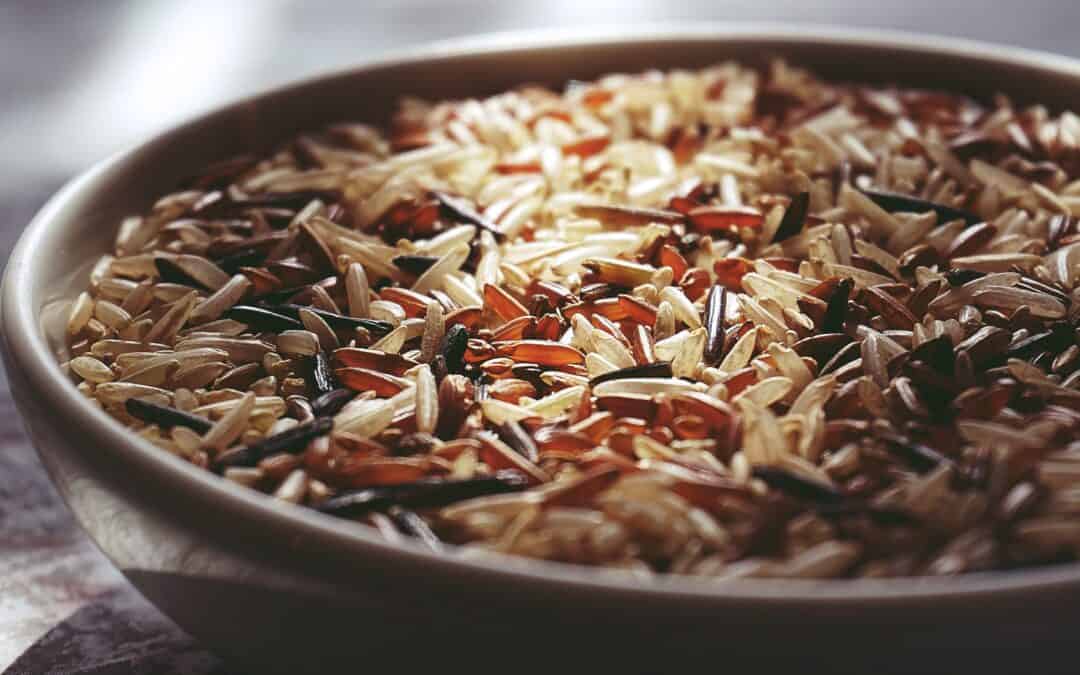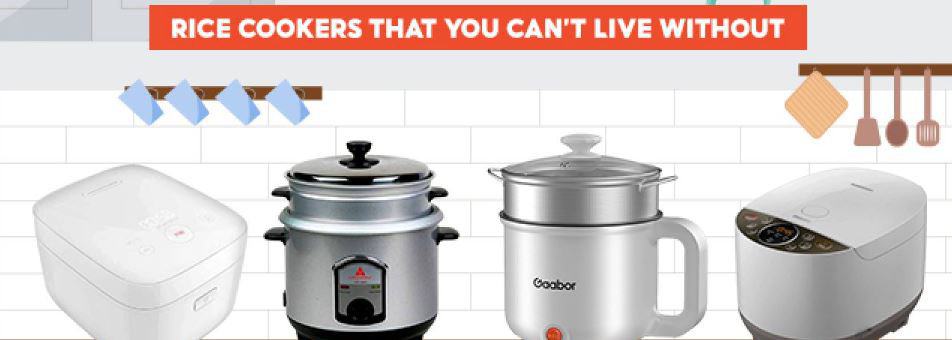No matter what appliance or product we purchase, everyone wants to use it to its fullest. Who doesn’t love a product with multipurpose features? One of the common kitchen appliances is a rice cooker which is generally used to cook rice (obviously). But that doesn’t mean you cannot consider other uses for the rice cooker. A rice cooker comes with a removable pot where you put the rice and water to boil. The pot can be taken out easily which is convenient for cleaning it.
The rice cooker should not be submerged in water since the electrical components inside can be damaged. But you can do whatever you want with the pot after you take it out. The rice cooker pot can be used like any regular utensil. So you may wonder, ‘Are rice cooker pots oven safe or not?’ Let’s find out!
Know Your Pot
When you buy a rice cooker, you take a look at the specifications to know if can deliver what you need. All the information about your rice cooker should be written on the side of the box. If you’re shopping online, look at the specifications/features section. You can ask the seller or manufacturer for more details if you feel unsure about the details.
During this process, you should find out whether the pot of your rice cooker is safe for the oven or not. Look for any mention of temperature. It should say something like ‘safe for oven’ or ‘safe for up to xx° (C/F)’. Usually, the safe number is mentioned. If there is a temperature mentioned that your pot can withstand, then keep that number in mind before you put it in the oven. If it says not to go above 300°C, avoid going over that temperature since it can result in the pot melting. But if there is no mention of temperature capacity or the word ‘oven’, then you should probably keep your rice cooker pot away from the oven.
Sometimes, the rice cooker may say ‘oven-proof’ but the maximum temperature might not be mentioned. In that case, you have to be extra cautious. The pot itself would tell you what you need to know once you study it properly.
Watch the Heat
The survival of your rice cooker pot and its heat limit depends on what it’s made of. Check the outer shell of the pot and see what it’s made of. Most modern rice cookers come with metal (mostly aluminum) inner pots. If your pot is made from metal as well, then it should be safe for around 200°C. Stainless steel is also used in many rice cooker pots nowadays which can also survive such heat.
However, if the pot has any plastic areas (for example- plastic coating on rims), then you should avoid putting it under that much heat. It can barely withstand 100°C if the pot has plastic parts. Many rice cooker inner pots have a Teflon coating, which is similar to plastic and is resistant to medium temperature. But if the Teflon is in contact with 120°C to 150°C temperature, then there is a high risk of it melting and releasing toxic vapor. It can poison your food and is very harmful to health. This is why you should not go around 100°C when your rice cooker inner pot has a Teflon coating.
Ceramic is another element you may find in your rice cooker pot since some companies are using it in the place of stainless steel. With a rice cooker, people are mostly worried about safety since a lot of non-stick coating can be harmful if they come in contact with heat. So manufacturers are finding ways to bring out the safest products possible so the consumers can enjoy their meals without worrying about being poisoned. Ceramic is a very safe coating for a rice cooker pot, just like stainless steel. But you also have to be careful with ceramic pots since they can withstand around 200°C.
Safety Measures
We already mentioned how having a plastic coating in the rice cooker inner pot can be harmful. There are some BPA-free plastic materials which you might consider safe. But when you’re contemplating putting the rice cooker pot inside an oven, you have to be extra careful. No matter how safe it is, plastic has the highest tendency to melt when it’s near heat. If you don’t want your food to get mix with the melted pot, then avoid using a pot with any kind of plastic at all.
Teflon coating is dangerous too if the temperature gets a little high. Even aluminum inner pots can have a Teflon coating to make them more resistant to heat. But the direct heat emitting from the oven can do some serious damage if you’re not careful with the temperature. Probably the safest material for rice cooker inner pot is stainless steel. It may absorb heat to the point where you won’t be able to touch the pot without oven mitts, but it is safe. The stainless steel won’t melt and release anything that might get mixed with the food. Knowing the materials used in the pot will help you figure out the answer to your question: are rice cooker pots oven safe?
Care and Maintenance
Some people keep the inner pot of their old rice cooker for other purposes even after the rice cooker itself gets damaged. The electrical component can give out after a few years but the inner pot can surely stay intact. You may consider using that inner pot to use in the oven. Since you would be using an old pot, you need to make sure it’s not damaged or scratched up before you proceed with the oven.
Even if the pot is new, it can still suffer scratches or minor damage after some time. Most inner pots are made of aluminum and they come with a non-stick Teflon coating for extra protection. If the Teflon gets scratched in any way, it would very likely release some dangerous chemicals into your food no matter how low you keep the heat. Deadly aluminum can leach out of the Teflon coating and mix with your food. You can only imagine how dangerous it can be for you to eat that food.
Stainless steel won’t get scratched even if you handle it quite roughly. It doesn’t have any deadly element to release into your food, and neither does ceramic. Still, you should be careful about cleaning the inner pot. Proper care would ensure the pot stays intact for its expected lifespan and beyond.
If the inner pot is damaged or the Teflon coating seems to come off, you can use spray-on Teflon coating as an immediate solution. But the best approach would be to replace the inner pot as soon as possible. There is no sense in taking unnecessary risks.
Cleaning Tips
If your rice cooker pot is dishwasher then your job would be a lot easier. You can just use some dishwashing soap and put it in the washer. But avoid using harsh cleaning chemicals since it can damage the non-stick surface of your rice cooker pot. If the manufacturer cannot guarantee dishwasher-safety for the pot or if you would prefer washing it by hand, it may take longer but the result would be worth it.
After you’re done using the pot, soak it in warm soapy water for at least 20 minutes. If you can see solid food stuck to the inside of the pot, use a spoon or a spatula to pry them off. But don’t be too harsh with your scrapping as it can damage the surface. After you get the food pieces out, prepare the warm soapy water mix. The water should be at a temperature where you can dip your finger in without burning yourself. In this way, if any food particles are clinging to the pot, they will be loosened. This would make your cleaning process go more smoothly.
After it’s been soaked properly, use a soft sponge and soap to scrub away the food remains and rinse it thoroughly. Try not to use rough steel sponges since they can leave behind unwanted scratches. Let the pot completely dry off before putting it away. You should follow this cleaning routine every single time you use the pot to make sure there is no greasiness or smells remaining from food.
If any of the food pieces get stuck too stubbornly, you may have to keep the pot soaking in water for the whole night. With ceramic or Teflon coating, brush a little vegetable oil on the pot after it’s cleaned and dried off. That keeps the surface smooth for a long time.
Bottom Line
A rice cooker may not be that big of an investment compared to some of your other kitchen appliances. But anyone would still want it to be in good shape for as long as possible. Rice cooker pots are not as fragile as many people think them to be. Just keep this guide in mind before you put your rice cooker pot anywhere near an oven and you should be fine. Hopefully, this has addressed your questions on ‘Are rice cooker pots oven safe?’ and you can use them without any worries.


